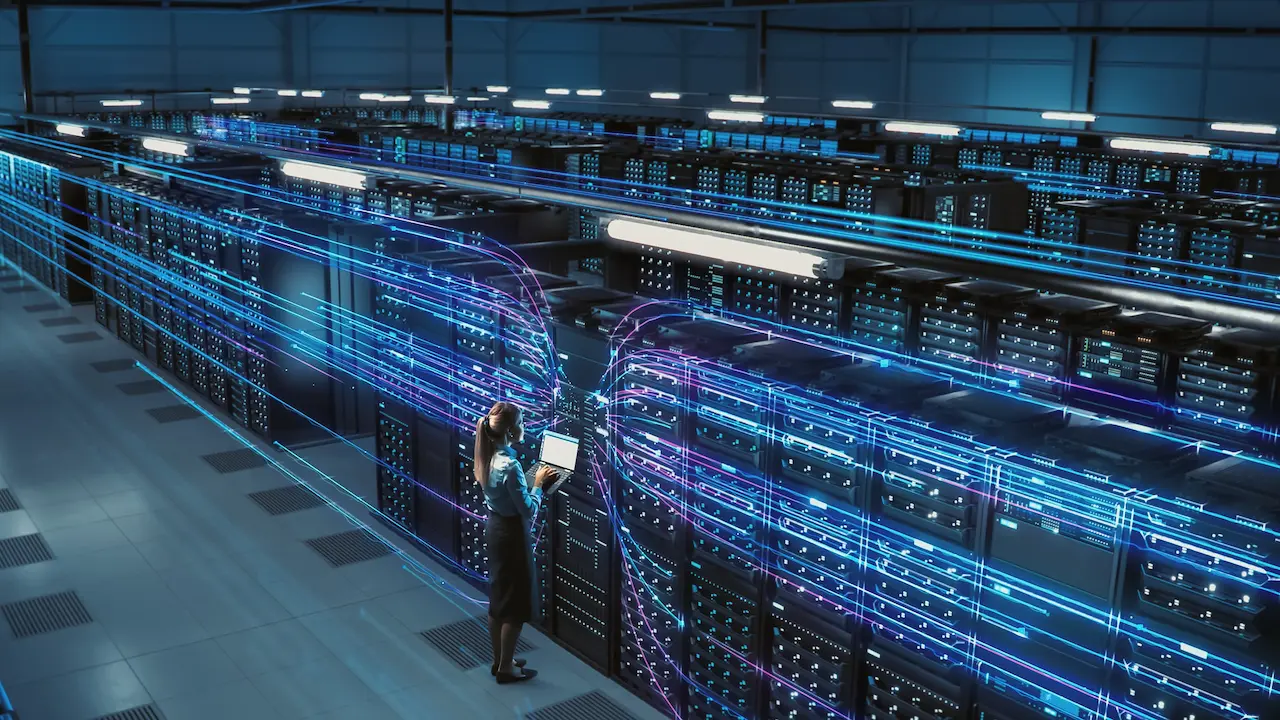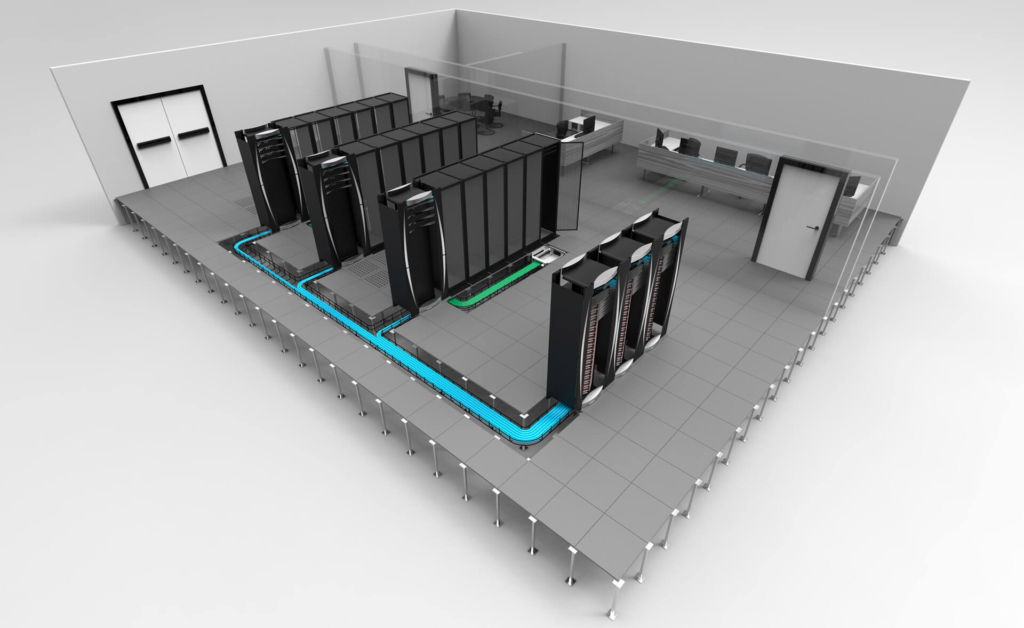Ainda sem produtos na sua encomenda!

Data centers are now critical infrastructures that support the functioning of the digital economy. As the volumes of information processed and stored grow, driven by Artificial Intelligence (AI) and Machine Learning (ML), so do the energy requirements of these spaces.
It is estimated that the energy consumption of data centers could double between 2022 and 2026, with applications such as ChatGPT consuming up to 10 times more processing power than traditional search engines such as Google Search (Statista, 2024).
In this context, HVAC (Heating, Ventilation and Air Conditioning) systems play a strategic role: they guarantee energy efficiency, protect the physical integrity of equipment and contribute to the operational resilience of data centers.
Together with other strategies, such as those in the article ‘Energy Efficiency and Sustainability Measures in Data Centres’, Heating, Ventilation and Air Conditioning (HVAC) systems play an essential and complex role in data centers.

Unlike traditional buildings, data centers operate continuously, housing high-density electronic equipment that generates large volumes of heat. This requires highly precise climate control systems capable of maintaining stable temperature and humidity conditions to guarantee the performance and longevity of IT systems.
According to ASHRAE (American Society of Heating, Refrigerating and Air-Conditioning Engineers) recommendations, the ideal equipment environment specifications for air cooling are:
These values may vary depending on the class of equipment used, but respecting them is essential. When the temperature exceeds the set limits, computer equipment can automatically shut down, risking data continuity and security.
When an HVAC system is improperly dimensioned, has control failures or is not adapted to the geometry and thermal load of the space, the operational risks increase significantly:
The wrong choice of HVAC system in critical environments can compromise operational efficiency and safety. When choosing an Air Handling Unit (AHU) for data centers, it is essential to consider various criteria to ensure energy efficiency, reliability and suitability for the space available.
Hereafter, we highlight the main technical criteria to consider when selecting a AHU for Data Centers:
Technologies such as EC fans, with lower consumption and variable speed; optimised heat exchangers, with high sensible and latent heat transfer and low pressure drop; and low air resistance filters, which reduce the power required from the fans.
Depending on the project, thermal loads can be borne by the AHU alone or shared with other cooling equipment, always keeping the temperature within the defined parameters, which normally follow ASHRAE recommendations for the safe and efficient operation of servers.
A AHU for data centers must have advanced filtering systems capable of eliminating particles and contaminants, guaranteeing a clean and suitable environment for the equipment.
Modular units allow scalability and adaptation to different data center configurations and evolutions.
With real-time monitoring, automatic adjustments to environmental variations and alerts
Essential for extending the lifetime of the system and avoiding costly breakdowns, guaranteeing the continuous operation of the data center.
Ensuring the constructive quality, energy performance and safety of the equipment installed.
Specialised air conditioning in data centers is a determining factor in ensuring energy efficiency, operational continuity and equipment durability. In a context where every degree counts and where the margins for error are minimal, it is essential to choose HVAC systems that are reliable, modular and adjusted to the technical requirements of each project.
At OCRAMclima®, we develop tailor-made Air Handling Units (AHU), with integration into Building Management System (BMS), high energy efficiency and advanced filtering solutions. In addition to AHU, we offer complementary solutions that can be adapted to challenges such as data centers.
If you want to delve into the solutions available for your project, or obtain technical support in the process of specifying and selecting equipment, our sales team is available to support you.